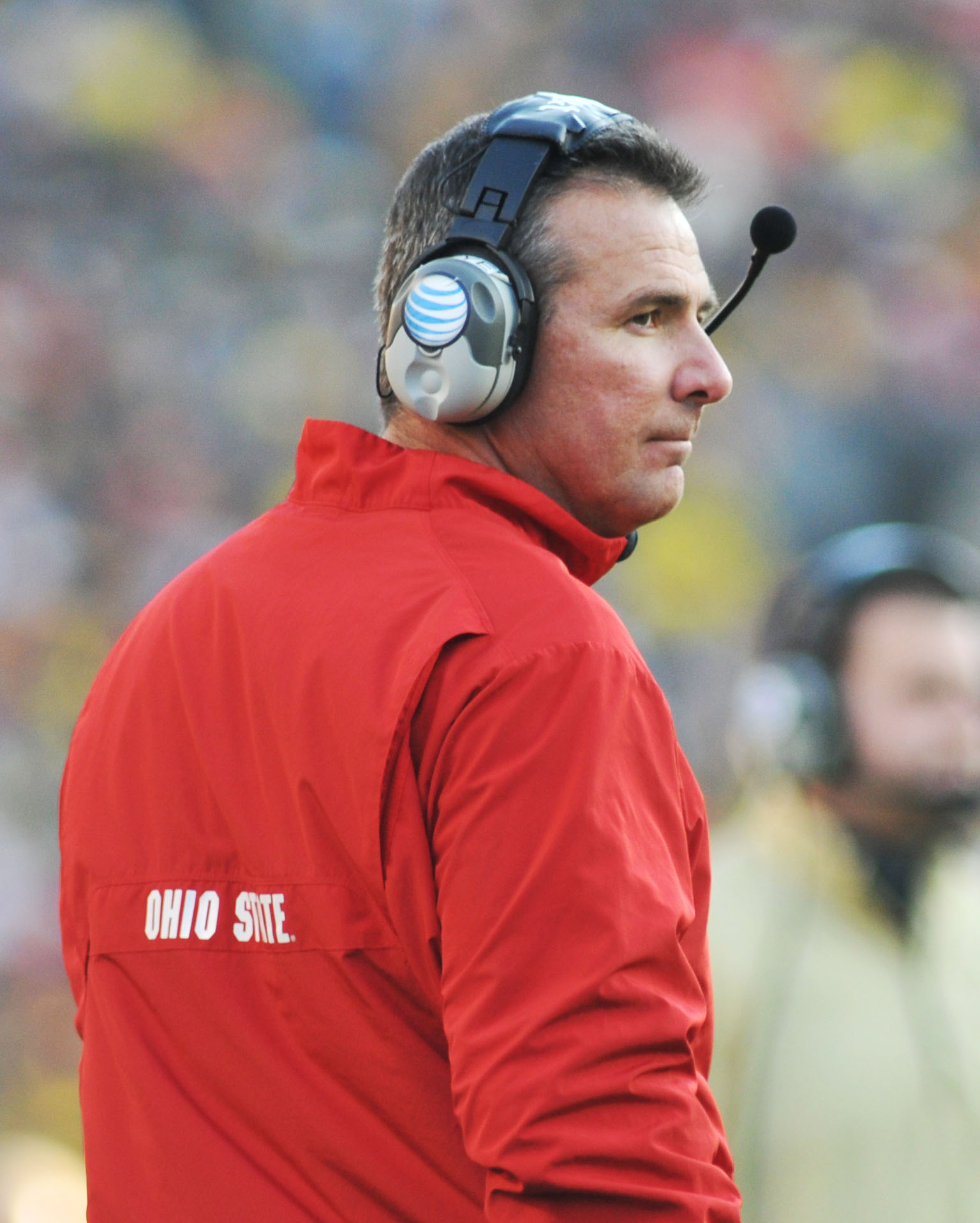
By Josh Bode
On Aug. 22, Ohio State head coach Urban Meyer was suspended by the university’s Board of Trustees. Meyer was suspended from practices until Sept. 2, meaning he was suspended for the first three games of the season. His suspension resulted from the knowledge that former Ohio State assistant coach Zach Smith’s wife accused Smith of domestic violence, dating back from 2009. The length of this suspension was too short. Meyer was given a slap on the wrist by the university, proving they care more about winning than issuing the correct punishment.
This domestic violence case against Smith is very similar to other cases across college football. The winningest coach in college football history, Joe Paterno, knew about one of his assistants being a pedophile during his career at Penn State. Paterno was fired because of this.
Art Briles, the former head coach of Baylor, was involved in a sexual-abuse scandal at the school. Briles was also fired because of this, yet Meyer receives only a three-game suspension. While these are larger scaled cases involving more victims, they are all along the lines of head coaches covering up offenses within the organization. These cases, among other, make the suspension of Meyer look like nothing. Meyer, one of the top tier coaches in college football, is pivotal to Ohio State’s success, and the board of trustees made it clear that they care more about the success of their program than issuing the proper penalty.
Also, Jim Tressel, a former Ohio State head coach, resigned due to Ohio State players taking benefits from a local tattoo parlor. This offense seems much less deserving for someone to be out of a job, while Meyer got off with only three games.
Furthermore, Meyer’s apology at his press conference was not sincere, and was not convincing to the media.
“There were red flags and I wish I had known and I wish I did a better job of finding things out,” Meyer said at his press conference. “I wish I was told more things. Ultimately, that is part of the job you’re ultimately responsible to represent this incredible university and, man, I wish I had done more. I wish I had known more.”
Meyer speaks about what he should have done, but is very repetitive and general. He never digs into what he should have done. The repetitiveness of his responses and his apology makes it sound as if he doesn’t care much about the press conference. Also, Meyer says he wished he was told more and known more. Meyer did know about the crimes Smith committed, and chose to not say anything. He accepted his three-game suspension, said sorry and carried on, most likely because it was obvious that he got off with basically nothing.
While some people may argue that a three-game suspension is an approvable length for something Meyer did not directly do, those three games have not impacted the season yet. Currently sitting at 3-0 after blowing out both Oregon State and Rutgers and took care of TCU. Meyer only missed one key game during his suspension, a 12 point victory over TCU, demonstrating that the university cares more about winning than issuing the correct punishment.
Meyer should have been suspended for much longer than three games. Other schools have given much larger punishments for coaches covering up scandals or problems inside of their program.The university let him off easy, showing that big name schools value winning over everything else.